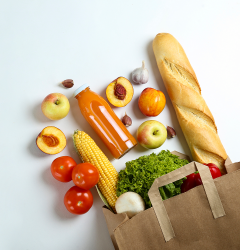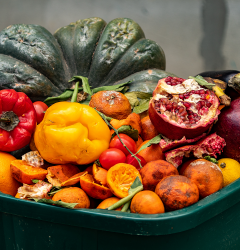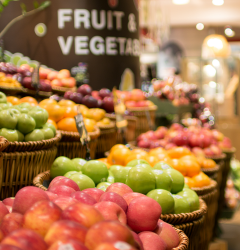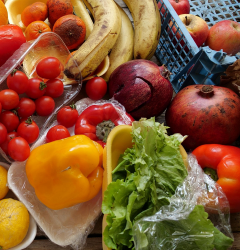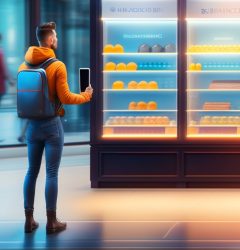Food Waste Management
Grocery Stores Going Green: A Fresh Look at Fruit and Vegetable Waste Management
17 May
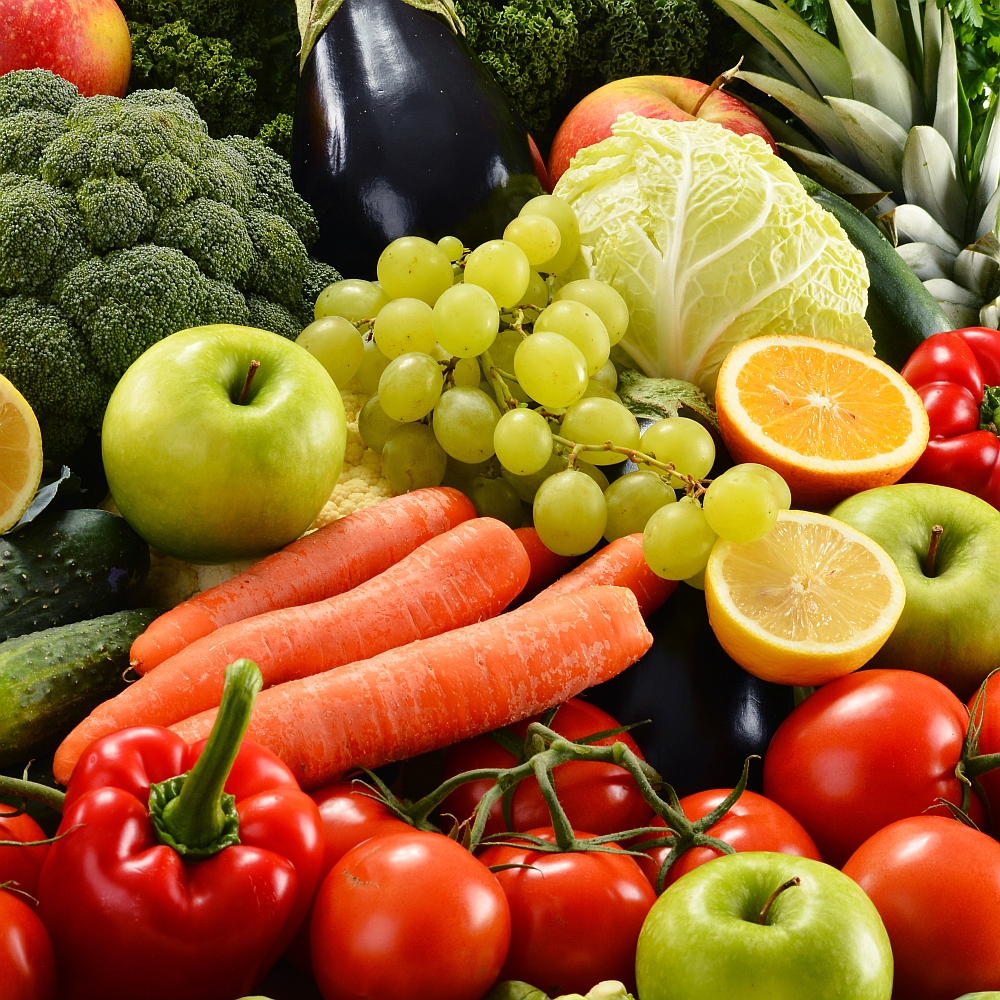
Grocery Stores Going Green: A Fresh Look at Fruit and Vegetable Waste Management
As the world moves towards sustainability, the spotlight has been thrown on the retail sector, especially grocery stores, given the vast amounts of food waste they generate. Link Retail, a leading name in AI retail waste management, is taking strides to address this issue head-on. Today, we’ll discuss how grocery stores are turning over a new leaf, placing their focus on managing fruit and vegetable waste to cultivate a greener future.
The Issue at Hand: Food Waste in Grocery Stores
Food waste is an escalating issue. This problem is particularly significant in grocery stores, where large amounts of fruits and vegetables go unsold and are ultimately discarded. Grocery store food waste accounts for a substantial portion of the total food waste generated across the globe, significantly contributing to environmental pollution. Various studies show that a significant proportion of supermarket food waste consists of fruits and vegetables. This wasted fruit and vegetable not only represents economic loss but also means the squandering of valuable resources that were used in their production, transportation, and storage.
Link Retail’s AI Waste Management Solution: A Revolution in Retail
In the face of such challenges, Link Retail has risen to the occasion, presenting a novel solution powered by retail AI. This advanced solution is designed to tackle the issue of fruit and vegetable waste effectively, thereby reducing food waste in supermarkets and promoting sustainability. Link Retail’s AI waste management system leverages advanced machine learning algorithms to analyze patterns in waste generation. It identifies the causes behind wasted fruit and vegetable and offers strategies to reduce it. The AI system integrates seamlessly into the existing retail infrastructure, making it a practical solution for grocery stores of all sizes.
How It Works
The AI waste management system by Link Retail works by gathering data on various aspects, including sales, inventory, and waste. It then uses this data to predict potential waste scenarios, allowing grocery stores to make informed decisions about purchasing, stocking, and selling their produce. This system reduces food waste in grocery stores by optimizing stock levels, ensuring that grocery stores order only what they can sell. Additionally, it offers insights into the optimal time for selling each fruit and vegetable, which can significantly reduce wastage.
Looking Ahead: A Greener Future for Grocery Stores
The future of grocery stores looks promising, with more of them adopting AI waste management solutions like those offered by Link Retail. By focusing on managing fruit and vegetable waste, grocery stores not only stand to benefit economically but also contribute significantly to a sustainable future. In summary, the issue of food waste in grocery stores is a pressing concern. However, thanks to advanced solutions like the AI waste management system from Link Retail, there is hope for significant improvement. By leveraging these innovative technologies and promoting responsible consumer behavior, we can look forward to a greener, more sustainable future in the retail sector.
The time for grocery stores to go green is now. Together with Link Retail’s revolutionary solutions, let’s take a fresh look at fruit and vegetable waste management and make a significant difference in our world. Let’s transform the way we perceive food waste and turn our supermarkets into spaces of sustainability and efficiency. If you are interested in learning more about how Link Retail can help your grocery store effectively manage waste and transition towards a more sustainable model, visit our product page here. We can’t wait to help you revolutionize your approach to waste management.
The Significance of Retail AI in Waste Management
The deployment of retail AI in waste management, as exemplified by Link Retail’s system, is proving to be a game-changer. By intelligently analyzing data, predicting waste scenarios, and providing actionable strategies, AI waste management can significantly reduce the footprint of grocery store waste. This technology is not just about reducing waste; it’s about optimizing resources. By predicting the demand for various fruits and vegetables, grocery stores can make informed decisions that benefit their bottom line while promoting sustainability.
Conclusion: The Greening of Grocery Stores
The journey towards greener grocery stores is well underway, with many supermarkets now focusing on reducing food waste, especially fruit and vegetable waste. With advanced tools such as Link Retail’s AI waste management system, grocery stores are well-equipped to tackle this issue. This shift towards sustainability in the retail sector is not only beneficial for the environment but also makes good business sense. By reducing waste, grocery stores can save costs and improve their efficiency, all while contributing to a sustainable future.
Grocery stores going green is a trend that is here to stay. As technology continues to evolve and offer even more innovative solutions, we can expect to see even more significant strides in waste management in the retail sector. Grocery stores are more than just a place to buy food. They are a critical link in our food supply chain, and their role in managing food waste is crucial. With the help of innovative solutions like Link Retail’s AI waste management system, they can lead the way towards a greener, more sustainable future. In the face of the global food waste problem, every effort counts. As a grocery store, adopting responsible waste management practices is a powerful way to make a difference. And as a consumer, choosing to shop at stores that prioritize sustainability is a simple but impactful way to contribute to the cause. Remember, every fruit and vegetable saved from waste is a step towards a greener planet. Let’s continue to push for change, one grocery store at a time.
Related Post
Tags
Keywords
Tags
Resources
© 2020-2024 Link Retail. All rights reserved.
